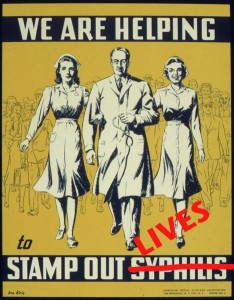
The interesting thing about writing dystopian fiction is when something in today’s headlines is similar to an issue faced in your novel. That happened this month when NPR ran a story about the ethics of doctors participating in executions. You’ll find both the audio and a transcript here.
This issue related to the recent botched execution of an Oklahoma inmate. The inmate appeared to be writhing in pain for more than half an hour before dying, which led some to say doctors should be on hand to assist in executions. Only, most medical association ethical guidelines (including the American Medical Association) say it’s wrong for doctors to be a part of executions.
I found this particularly interesting, because in my novel, Life First, that’s exactly what doctors do. In fact, the execution of inmates could not happen in the future I’ve built, but for doctors. You see, in Life First, instead of prisons, there are holding facilities. They do just what they sound like they do: hold inmates until it’s their time to die. Only, in this society that values life primarily, they don’t just murder inmates willy nilly; they have a policy of “death through life giving.” Essentially, that means they harvest all the inmates usable organs for transplant. That’s not a task you hire an unskilled worker to complete. You need licensed medical professionals to do that.
Because the novel is primarily about Kelsey’s plight, I don’t focus a ton on the ethical dilemmas facing doctors. However, I think I know how the transplant doctors feel based on a conversation Kelsey and her escape accomplice, Dr. Stephen Grant, have early on in the book. In the excerpt below, the two discuss how the legal case that caused the policy of “Life First” (where citizens are required to donate their organs to others) came about. (Kelsey narrates the book first person.)
“It changed everything. Especially how doctors practice. Did you know doctors used to take a different oath?”
I sit up straighter. While this makes sense, it never occurred to me before now that doctors made a different pledge when they were sworn into the profession. “Something other than the Oath to Preserve Life?”
“Yeah, they used to take something called the Hippocratic Oath. One of its key tenets was: ‘First, do no harm.’ I wish we still took an oath like that. I feel like I’m hurting my patients by not helping them the way they need to be helped, by always balancing their needs against someone else’s.”
Yeah, that would be tough. His colleagues, apparently, don’t share the same concerns. “Why aren’t more doctors upset by it?”
“Some are,” he says plainly. “Others are just of a different breed. They’re immersed in Life First. Sometimes I think people have forgotten just how much society changed after the pandemics. So many people died, and many of them carried practical knowledge that wasn’t necessarily in the books. It took two decades just to get back on track with returning the normal chain of supply of goods, and get people out of their houses and trusting again. And while the medical community has probably made the most strides since the pandemics, the people who emerged from it weren’t the doctors and nurses that went into it. A lot of the people who ended up in medicine during the pandemics weren’t trained physicians. They were warm bodies willing to come in contact with a deadly virus. After the pandemics, these new doctors were people who had survived, who had immunity. They were taught on the fly how to care for sick people. They had to make due with their own notions, and those notions have shaped medicine today.
“That survivor mentality among doctors has managed to prevail. People don’t believe saving lives is doing harm. But, sometimes it is.”
So, it’s a different breed of medical professionals, and if they’re helping people by providing them good organs, they don’t see the harm in taking them from criminals. Very different from the ethical guidelines of today. Question for my dear readers: Do you think doctors should be involved in executions?
Pingback: Headlines Hit Close to Home Again: Should your car kill you? | RJ Crayton
Executions worry me. I always wonder, what if he/she was really innocent?
Absolutely. There’s a finality to executions that you can’t take back. While the US justice system strives for legal finality (you only get so many appeals, and most crimes have statutes of limitations so that if you wait too long to file charges, you just can’t), we also have a few break-glass-in-case-of-emergency types of resolutions (a pardon from the governor, for example). But, if you execute, there it’s final and unfixable.
Yep, final. I’m glad we don’t have prisoners executed here.
Which also brings up the issues of assisted suicide and abortion, both of which have compelling arguments for each side.
Absolutely, Yvonne. These are thorny ethical issues that doctors struggle with. And it’s always the most fun to write about what happens after people have slipped off that slope (they should probably just put a road closed sign up, given how often people talk about that menacingly slippery slope 🙂 )